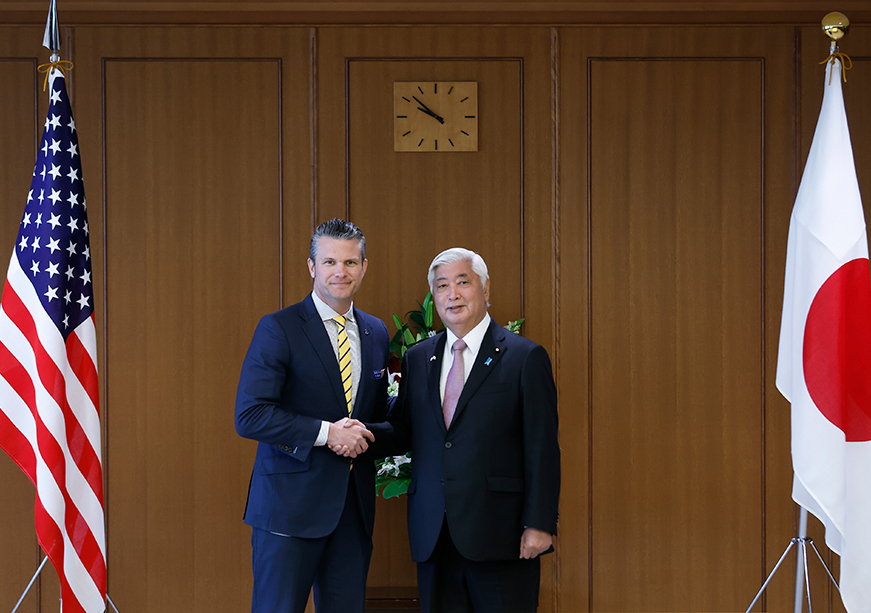
Image Source: Getty
This article is part of the series—Raisina Edit 2025
Since launching the Belt and Road Initiative (BRI) in 2013, China has increasingly relied on private security companies (PSCs) to safeguard its investments and personnel abroad, compensating for its limited global military presence. Unlike Russia’s quasi-private military and security companies (PMCs), which often engage in covert military operations, Chinese PSCs serve a more controlled purpose—protecting BRI projects without deploying the People’s Liberation Army (PLA).
Rising anti-Chinese violence from Pakistan to sub-Saharan Africa and the ongoing civil war in Myanmar have amplified the role of PSCs, forcing Beijing to prioritise professionalism and tighter oversight. Unlike Moscow’s ‘Kalashnikov Diplomacy,’ China’s PSC strategy remains highly regulated and designated as a passive security tool. This calculated approach aligns with its broader geopolitical ambitions under the BRI and the Global Security Initiative (GSI), reinforcing Beijing’s emphasis on influence through controlled stability rather than confrontation.
Rising anti-Chinese violence from Pakistan to sub-Saharan Africa and the ongoing civil war in Myanmar have amplified the role of PSCs, forcing Beijing to prioritise professionalism and tighter oversight.
The year 2025 has already been defined by escalating global insecurity, and China’s immediate neighbourhood is growing ever more unstable. Nowhere is this more evident than in Myanmar, where conflict is deepening and the economy continues its downward spiral. In recent years, Beijing has held back on major investments, likely waiting for a flicker of stability before risking BRI expansion in the region. As the pressure mounts, the BRI stands at a crossroads. Once a symbol of China’s global ascendancy, it now faces an increasingly hostile geopolitical landscape—one that could reshape its future and Beijing’s influence worldwide. Myanmar hosts one of China’s two key economic corridors in its immediate neighbourhood—the almost US$15 billion China-Myanmar Economic Corridor (CMEC)—while the other is the US$62 billion China-Pakistan Economic Corridor (CPEC). In both cases, reports have emerged that Beijing is considering deploying Chinese private security firms to safeguard its investments and citizens. The news, however, sparked scepticism and even outrage, with critics arguing that it either weakened state sovereignty or constituted a direct violation of it. Reports indicate that Chinese private security firms already operate in Myanmar. Still, a possible establishment of the much-discussed joint security company between the Myanmar military junta and a Chinese private security counterpart is poised to significantly expand the scale and scope of these operations.
While Beijing continues to weigh the merits and drawbacks of a direct intervention to protect Chinese personnel and investments, Chinese private security firms are likely to play an increasingly pivotal role in protecting Chinese interests overseas and enhancing security capabilities in a realm where the line between private and public is seldom clear. As Beijing continues to uphold its principle of non-interference, instability in its immediate neighbourhood threatens both local projects and China's broader geostrategic vision for regional connectivity.
The case of CMEC and other Chinese business activities in Myanmar highlights China’s vulnerability to escalating conflict and offers insight into its role in the ongoing civil war. According to Pascal Abb, an expert on China- Myanmar relations, CMEC was already an ambitious and controversial project before the post-coup conflict. Beyond widespread anti-Chinese sentiment, the project intersects with two deep-rooted fault lines in Myanmar’s politics: the long-standing tensions between the Bamar-dominated central government and ethnic minority regions and the civilian-military power struggle that culminated in the 2021 coup. Just as anti-Chinese violence erupted around Gwadar Port along CPEC, Kyaukphyu Port in the CMEC has become a focal point for power struggles over project and revenue control among various authorities. It has also become a magnet for local crises. The already complicated situation on the ground in Myanmar with a myriad of local rebel fighting forces controlling the main border cross with China and the rise of criminal organisations that involve Chinese citizens both as citizens and victims.
In Myanmar, the military junta openly supports a visible Chinese security presence and is actively pursuing a joint venture with the Chinese private security sector.
Similar to Pakistan—where reports of Chinese PSCs operating on the ground were met with official denials of any possibility for full ownership—Chinese PSCs are already active in Myanmar. However, in Myanmar, the military junta openly supports a visible Chinese security presence and is actively pursuing a joint venture with the Chinese private security sector. At the same time, the proposed private security joint venture model serves a dual purpose for Beijing: It allows China to maintain public deniability if anything goes wrong while enabling the military junta in Myanmar to save face by claiming that no sovereign authority has been ceded to a foreign entity. Given its proximity to Yunnan, Kunming has become the preferred launch point for Chinese PSCs operating in Myanmar and along the border areas.
China’s private security challenge: Balancing expansion with control.
It is no surprise that in China, at the provincial level, local governments are actively encouraged to build and maintain a dependable, high-performing private security force.
Nevertheless, the most recent regulation that supervises the development of the Chinese Private Security Sector that took effect in June 2024 still does not offer the expected guidelines on Chinese PSC rules of engagement and if and how to deploy armed personnel while operating overseas. The evolution of Chinese private security companies began in the 1990s with restrictive laws allowing their licensing as part of China’s broader economic opening under Deng Xiaoping. Initially, only former military and police personnel could establish such firms, and private security officers were prohibited from carrying weapons. A 2009 legal amendment expanded the sector’s scope, allowing armed escort services for cash and valuables and removing the requirement for founders to be former public security officers. Despite this, most private security firms in China remain dominated by ex-military and police personnel.
The surge in Chinese investments abroad has driven an increased reliance on local and international PSCs, yet the professionalisation of the Chinese private security sector remains a critical challenge.
Since the launch of the BRI in 2013, China has faced growing security demands to protect its expanding global footprint. The surge in Chinese investments abroad has driven an increased reliance on local and international PSCs, yet the professionalisation of the Chinese private security sector remains a critical challenge. Striking a balance between security needs and China’s long-held principle of non-interference has proven difficult, prompting Beijing to tighten regulations and align PSC development with President Xi Jinping’s GSI—a vision for a new security order distinct from Western frameworks. Efforts to enhance PSC capabilities include closer coordination with Chinese consulates, United Nations peacekeeping forces and improved operational standards. However, scepticism lingers in the West regarding the true role of Chinese PSCs, particularly their potential involvement in intelligence gathering as part of China’s Military-Civil Fusion (MCF) strategy, which seeks to integrate civilian and military resources.
To mitigate these risks, China is moving toward tighter oversight, stricter regulations, and the promotion of elite PSCs loyal to the Chinese Communist Party (CCP). However, the issue of whether Chinese PSCs can carry weapons abroad remains unaddressed, even in the latest regulations. This trend is already reshaping security strategies in key regions. An early example of this approach comes from Central Asia, as Chinese investments operate with low visibility, minimising local engagement, while in Africa, the match of State Owned Enterprises’ (SOEs) investments and weak crisis response presents major vulnerabilities.
Ultimately, the future of the BRI hinges on China’s ability to refine its security-investment nexus, and Myanmar is an immediate litmus test. In Myanmar, the stakes are higher—both Chinese provincial and central authorities impose strict scrutiny on PSC operations, recognising that any misstep in China's ‘near abroad’ could trigger destabilising ripple effects back to the mainland. Amidst the urgency for the Chinese private security sector reform driven by instability in this ‘’near abroad,’, Beijing stands at a crossroads: professionalise its PSCs, expand the PLA’s overseas footprint, or adopt a hybrid strategy—each choice carrying profound implications for China’s global security posture.
Alessandro Arduino is an affiliate lecturer at the Lau China Institute of King's College London.
The views expressed above belong to the author(s). ORF research and analyses now available on Telegram! Click here to access our curated content — blogs, longforms and interviews.




 PREV
PREV



